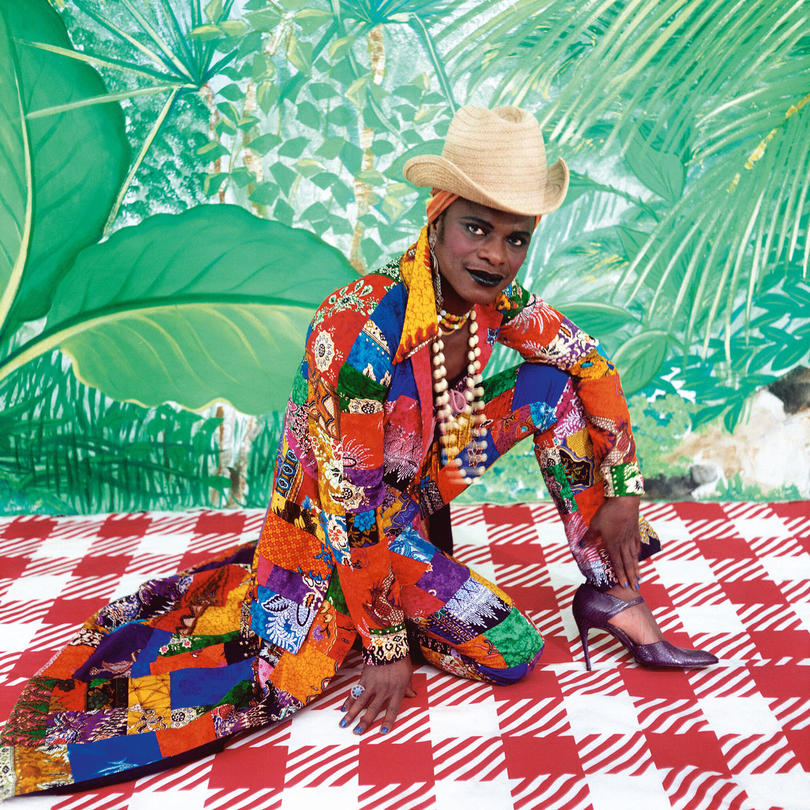Art Museum Mounts Survey of Acclaimed Photographer Samuel Fosso

The Princeton University Art Museum's current exhibition, Samuel Fosso: Affirmative Acts, is the first major U.S. survey of one of the most renowned contemporary artists based in Africa today. The exhibition—curated by Princeton University Professor Chika Okeke-Agulu with Silma Berrada, Lawrence Chamunorwa, Maia Julis, and Iheanyi Onwuegbucha—will be on view at Art on Hulfish in downtown Princeton until Jan. 29, 2023, and will offer U.S. audiences an introduction to one of the best-known photographers from the African continent on the international scene.
Fosso’s intimate self-portraits, which he began shooting when he was about thirteen, explore identity, social history, and the impact of colonialism on the African continent. The earliest work in the exhibition, which includes more than twenty pictures drawn mostly from The Walther Collection, was shot in 1975, when the young Fosso opened his first studio in the Central African Republic. After spending each day taking pictures of clients, Fosso used leftover film to take self-confident photos of himself to send to his grandmother in Nigeria.
In 1997 Fosso, by then an established artist, earned a commission from the French retailer Tati for 12 self-portraits wearing the styles of the day. The images—the first Fosso took in color—depict the artist as a golfer, a lifeguard, and a bourgeois woman, among other personalities, suggesting the flexibility of identity, social class, and gender. The series earned him the moniker “the man with a thousand faces.” Just over a decade later, Fosso broadened his interest in identity with his series African Spirits (2008), wherein he dressed himself up as fourteen icons of Black Liberation (including Martin Luther King Jr., Angela Davis, Muhammad Ali, and Malcolm X) to celebrate and pay homage to their transformative political work. Works from both series, drawn from The Walther Collection, will be on view.
The exhibition continues with images from the past decade that consider Africa as a crossroads of the world. In Emperor of Africa (2013), Fosso reimagines himself as the Chinese revolutionary leader Mao Zedong as a comment on the widespread presence of Chinese investment across the African continent today. Another work, Black Pope (2017), depicts the artist holding a large cross and posing as the head of the Catholic Church, thereby reflecting on Christianity’s deep influence on African societies and political structures while also asking audiences to imagine what a Black Pope could look like.
“This exhibition is an overdue opportunity for us in the United States to familiarize ourselves with Samuel Fosso’s remarkable work and career,” said James Steward, Nancy A. Nasher–David J. Haemisegger, Class of 1976, Director. “His photographs are poignant reflections on the complexities of modern life, the shifting nature of identity, and the interconnectedness of modern nations and societies that have only become more relevant in recent years.”
Samuel Fosso: Affirmative Acts is organized by the Princeton University Art Museum in collaboration with The Walther Collection.
